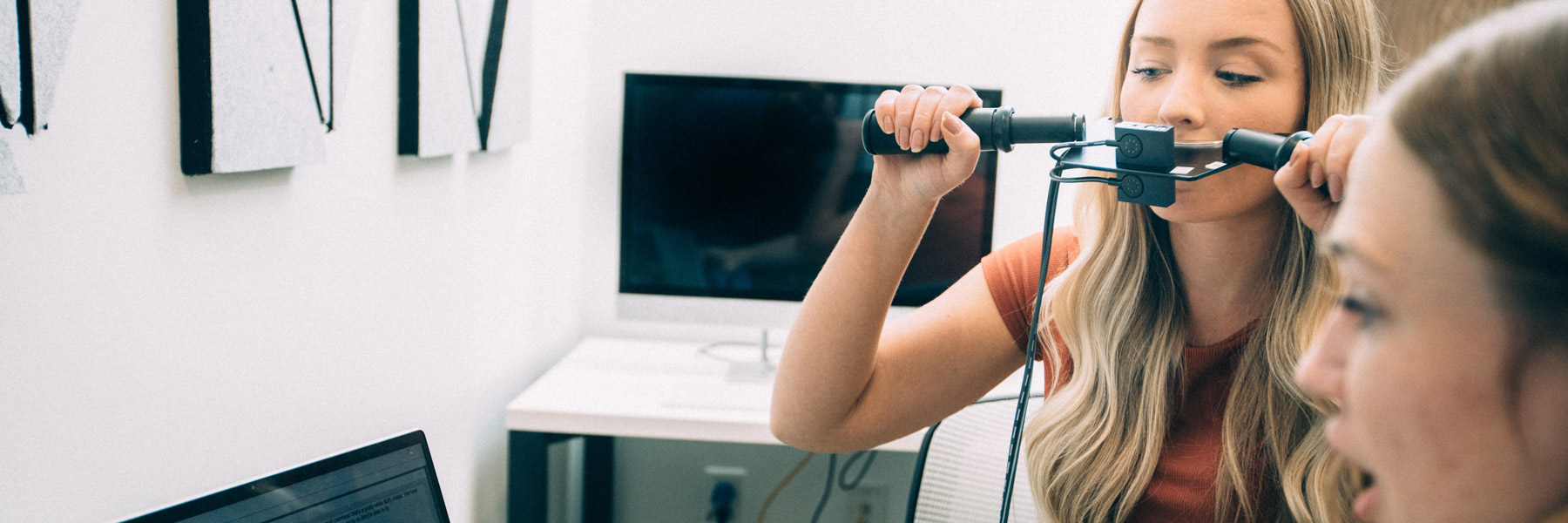Purpose
The primary objective of the Outreach graduate program is to meet the critical shortage of school-based speech-language pathologists (SLPs) in rural or SLP under-served areas of Utah. The graduate program provides high quality education and training. Students graduate ready to become SLPs, eligible for national certification, state licensure, and employment in all professional work settings.
Requirements
In order to participate in the Outreach program, students must:
- Be employed in the Utah public schools as speech-language technicians (also called speech-language assistants), and
- Have signed agreements between COMDDE and their employing school districts or local educational agencies (LEAs).
Applicants must have a bachelor's degree in communicative disorders or equivalent undergraduate prerequisite coursework. Admission to the COMDDE master's degree in speech-language pathology is on a competitive basis. For more information on application and admission, see the Graduate SLP Admissions tab.
Coursework
Outreach students are part of the department SLP graduate student cohort. They are full-time graduate students who are expected to graduate in six semesters. The program starts in June with a summer semester. During that first semester, Outreach students travel to the Logan main campus to attend classes with the campus-based students. Fall and Spring semesters, Outreach students participate in classes synchronously with campus students from USU regional campus sites via broadcast technology. Outreach students must be available to take the classes when scheduled. In this way, Outreach and campus students see, talk, and interact with each other and with the instructors.
Clinical Experiences
Outreach graduate students participate in clinical training each semester of graduate school. In the first summer semester, students receive their initial clinical experience on the main Logan campus. In subsequent semesters, students receive clinical experiences within their employing districts. In order to develop clinical competencies across a range of disorders and ages, students may need to move among sites within the district. Workloads should allow sufficient opportunities for quality clinical education.
To provide quality education to Outreach students, the district training and supervision must be conducted by SLPs who are clinically responsible for those sites. The supervising SLPs must hold a current certificate of clinical competence (CCC) from the American Speech-Language-Hearing Association (ASHA) and a Utah educational license, have at least 9 months of clinical experience beyond their clinical fellowship year and have 2 hours of continuing education in clinical supervision.
As part of the educational path to becoming a certified SLP, students must gain competencies in medical or adult-oriented settings, such as hospitals, skilled nursing facilities, or rehabilitation centers. Again, these educational experiences are supervised by certified and licensed SLPs who are clinical responsible for those sites. These experiences are gained in a full-time externship in the second summer semester.
Continuity of Clinical Training
A USU COMDDE Clinical Educator works closely with the Outreach graduate students, their supervising SLPs, and the sponsoring districts for the duration of their program. This certified, licensed SLP oversees all clinical training experiences, with remote interactions via a HIPAA-compliant conferencing system. The Outreach Clinical Educator sets up and oversees the medical externship. The Outreach Clinical Educator tracks all clinical experiences and assures that each student receives the variety and number of clinical clock hours and associated competencies required to become a highly qualified and CCC-eligible SLP.
Employer Support
A student’s employing district must enter into a contractual agreement with COMDDE prior to the beginning of the first fall semester. The district must be willing to provide the time and resources needed for a quality SLP graduate education taking place concurrently with work responsibilities.
Not all employers are willing to commit to the support required. Applicants to the program should have at least an informal agreement with their employers prior to accepting an offer of admission. Preference will be given to highly-qualified applicants with a strong letter of support from their employer in their application packet (see SLP Admissions tab).
If a student is unable to obtain a formal agreement or if an appropriate district SLP supervisor cannot be secured, the student will be removed from the Outreach program. The student will have the option of moving into the campus program, but the student must fulfill all campus program obligations. Completion of the degree program may be delayed, depending on campus clinic resources at the time of the program shift.
Payback
Students participating in the Outreach program may receive funding for their education through COMDDE via a grant from the Utah State Office of Education. Recipients are responsible to work as SLPs in Utah public schools for a designated amount of time after graduation. Additional information will be provided at the time of acceptance.



